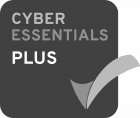02 February 2022
The key word in our industry at the moment is choice; and the importance of providing meaningful, democratic choice to our customers is a central theme of what’s coming down the line with the Leasehold Reform agenda.
Whether the mechanism is a traditional leasehold/freeholder model – which works well for many – right to manage, resident managed company or commonhold, the legislation is an opportunity for all of us in the sector to bring more meaningful choice to our customers.
But with choice comes the need also to provide clarity to our customers. If what we do and how we operate is confusing or there are grey areas for customers, then how can choice possibly be meaningful?
We understand the importance of consistency across the industry and about being open and honest about our role.
This is an opportunity for those property managers at the higher end of the quality scale to set the standards, show value for money and transparency, and er-focused. But on the other side of the coin, this will also shine a light on any substandard practices that need to be addressed.
Resident involvement
With more choice and clarity, there’s opportunity for residents to be more involved in how their homes are run, with more say over day-to-day tasks and, also, big decisions. This is welcomed by our industry and is a natural step when clarity and choice is the focus.
But this doesn’t come without challenges. For example, if you take 100 customers living in an apartment building, each define and experience ‘good service’ and ‘fair cost’ differently. Some will have strong views at either end of the quality/cost spectrum.
We will never please everyone, but we are committed to working with residents to find a good consensus whilst delivering high standards, and, when we fall short, to find a way to put it right.
Facing challenges
More resident involvement will mean more responsibility for some challenging issues. So, as residents are granted greater control over things like fire safety (amongst other things), good property managers will need to demonstrate their expertise to help navigate issues so that they can be a helpful partner.
Take building safety as an example: there is a collective commitment from all in the industry to protect leaseholders and residents by making sure homes meet the correct building and fire safety standards. Though sometimes we get ‘shot’ as the messenger in working through these tough projects, we hear daily the very genuine concerns of decent people inadvertently caught up in a system that wasn’t working correctly.
This is very challenging for so many leaseholders, financially and emotionally, and is the reason we introduced our ‘no profit’ pledge for our role coordinating Building Safety Fund work on non-ACM cladding affected buildings above 18m.
Customer-centric technology
As with the leasehold reform agenda, technology can help drive higher service standards across the sector so that choice between different operators can be meaningful.
At a time when we need to be in the best shape possible for our customers, having the best digital tools and new innovations available has never been more important to ensure we deliver quicker reaction time, better communication, and greater transparency.
FirstPort has invested in a digital transformation programme to streamline processes and enhance customer experience, and this is really exciting because what we’re doing now is truly industry leading.
We’re looking forward to this next chapter. The improved confidence in a professional industry, increased clarity and transparency to encourage informed decisions, and, most importantly, meaningful and democratic choice that will set the standards for our customers.
Though our work is not without its day-to-day challenges, our industry stands on the threshold of a positive and professional future.



